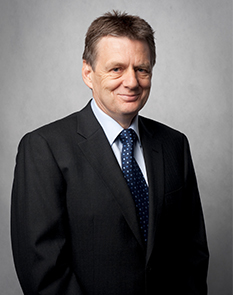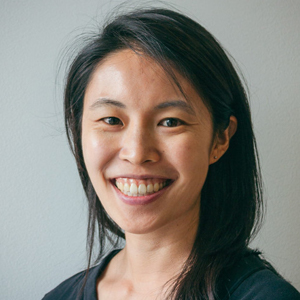Cowman regarded as 'a world leader in malaria research'
Alan F. Cowman, professor and head of the Division of Infection and Immunity at the Walter and Eliza Hall Institute of Medical Research in Melbourne, Australia, is the recipient of the 2015 American Society for Biochemistry and Molecular Biology’s Alice and C.C. Wang Award in Molecular Parasitology.
 "It is a great honor to receive the Alice and C.C. Wang award, and I thank Alice and C.C. for their continued support of parasitology research. This award recognizes the many talented graduate students and postdocs who have been so pivotal to the work done by the lab over the years. I would like to thank them and the many collaborators with whom I have worked. " — ALAN F. COWMAN
"It is a great honor to receive the Alice and C.C. Wang award, and I thank Alice and C.C. for their continued support of parasitology research. This award recognizes the many talented graduate students and postdocs who have been so pivotal to the work done by the lab over the years. I would like to thank them and the many collaborators with whom I have worked. " — ALAN F. COWMAN The award is given to researchers who have made significant contributions to the field of molecular parasitology. Recipients of this award are internationally recognized scientific leaders who have made important discoveries in the field and continue to lead the forefront of research in the area. Cowman was awarded for his work on understanding Plasmodium falciparum, the protozoan parasite that causes the most severe form of malaria in humans.
“Professor Alan Cowman has made a number of profoundly important discoveries over the past 25 years of his research career in malaria that see him recognized as one of the very top, possibly the actual top, in the field internationally,” Brendan Crabb of the Burnet Institute wrote in his letter of support for Cowman’s nomination.
Malaria is a mosquito-borne infectious disease that is a major cause of illness in approximately 100 countries. More than 300 million people are infected by the parasite, and up to 800,000, mostly children, die every year.
From the start of his career, the findings and technologies produced from Cowman’s laboratory have been revolutionary for the field of malaria biology. His early work identified mutations in P. falciparum genes that conferred resistance to anti-malarial drug compounds. “The work provided an understanding of the evolution of resistance to those compounds and, as a direct result, provided the information to allow the study of the geographical spread and emergence of drug resistant P. falciparum in endemic areas, giving rise to a new field of molecular epidemiology,” Doug Hilton of the Walter and Eliza Hall Institute of Medical Research wrote in his nomination letter.
Cowman’s laboratory was the first to create a genetic knockout in P. falciparum by genetically manipulating its genome. The feat was followed by the first large-scale knockout screen in malaria biology. The screen identified important proteins key to the parasite’s survival in the host. “This was a significant leap in the field, and the genetic technology he created is now used in every malaria research laboratory in the world,” Hilton continued.
The impact of Cowman’s work expands beyond the scientific community into the realm of public health. The tools developed during his early work to monitor molecular markers of drug resistance have been used to determine which drugs would be most effective in patients in specific endemic areas. Using the genetic technology he had developed, Cowman and his laboratory collaborated with Stefan Kappe at the Seattle Biomedical Research Institute to create the first genetically engineered live attenuated malaria vaccine. The vaccine has completed Phase 1 clinical trials, which were funded by the Bill and Melinda Gates Foundation and the Grand Challenges Foundation.
The quality of his work is reflected in his extensive publication record, with many in the “world’s most prestigious scientific journals, where they belong,” B. Brett Finlay of the University of British Columbia wrote in his letter of support. This award will add to a long list of honors already bestowed upon Cowman, including induction as a Howard Hughes Medical Institute International Scholar, a fellow of the Australian Academy of Science and a fellow of the Royal Society.
“Working in a highly competitive field, on an organism that is notoriously difficult to manipulate, his laboratory relentlessly makes significant leaps in our understanding of malaria pathogenesis,” Finlay wrote. “These breakthroughs have changed people’s lives and health outcomes – something very few researchers can ever hope to claim in their lifetime.”
Cowman received his Ph.D. from the Walter and Eliza Hall Institute of Medical Research. After a postdoctoral fellowship at the University of California, Berkeley, Cowman returned to the institute and has been there since.
Cowman will receive his award during the 2015 Experimental Biology conference in Boston, where he will deliver his award lecture. The presentation will take place at 9:45 a.m. March 30 in the Boston Convention and Exhibition Center, Room 253 A.
Enjoy reading ASBMB Today?
Become a member to receive the print edition four times a year and the digital edition monthly.
Learn moreGet the latest from ASBMB Today
Enter your email address, and we’ll send you a weekly email with recent articles, interviews and more.
Latest in People
People highlights or most popular articles

2026 ASBMB election results
Meet the new Council members and Nominating Committee member.

Simcox wins SACNAS mentorship award
She was recognized for her sustained excellence in mentorship and was honored at SACNAS’ 2025 National Conference.

From humble beginnings to unlocking lysosomal secrets
Monther Abu–Remaileh will receive the ASBMB’s 2026 Walter A. Shaw Young Investigator Award in Lipid Research at the ASBMB Annual Meeting, March 7-10 in Washington, D.C.

Chemistry meets biology to thwart parasites
Margaret Phillips will receive the Alice and C. C. Wang Award in Molecular Parasitology at the ASBMB Annual Meeting, March 7-10 in Washington, D.C.

ASBMB announces 2026 JBC/Tabor awardees
The seven awardees are first authors of outstanding papers published in 2025 in the Journal of Biological Chemistry.

Decoding how bacteria flip host’s molecular switches
Kim Orth will receive the Earl and Thressa Stadtman Distinguished Scientists Award at the ASBMB Annual Meeting, March 7–10, just outside of Washington, D.C.

